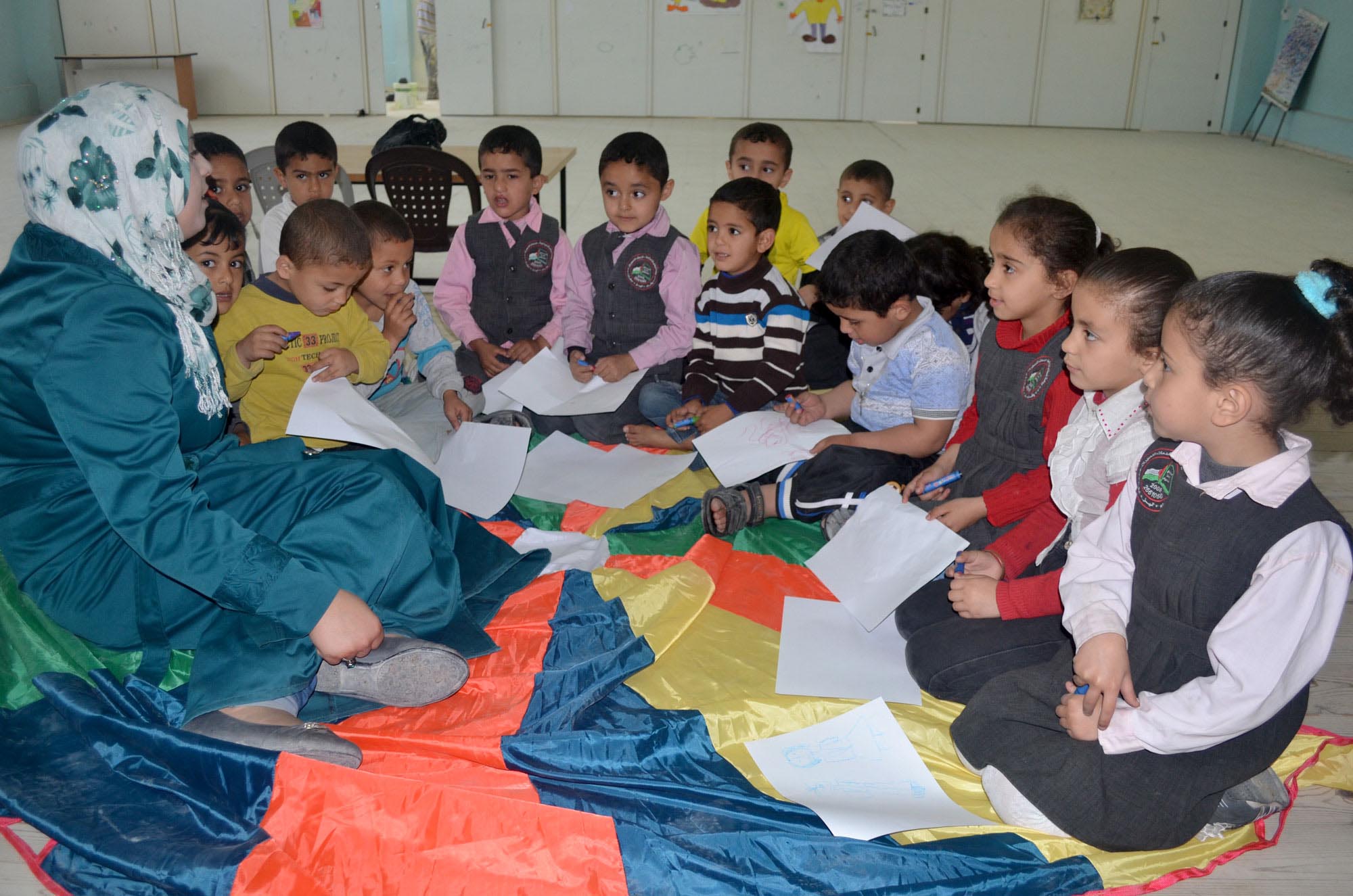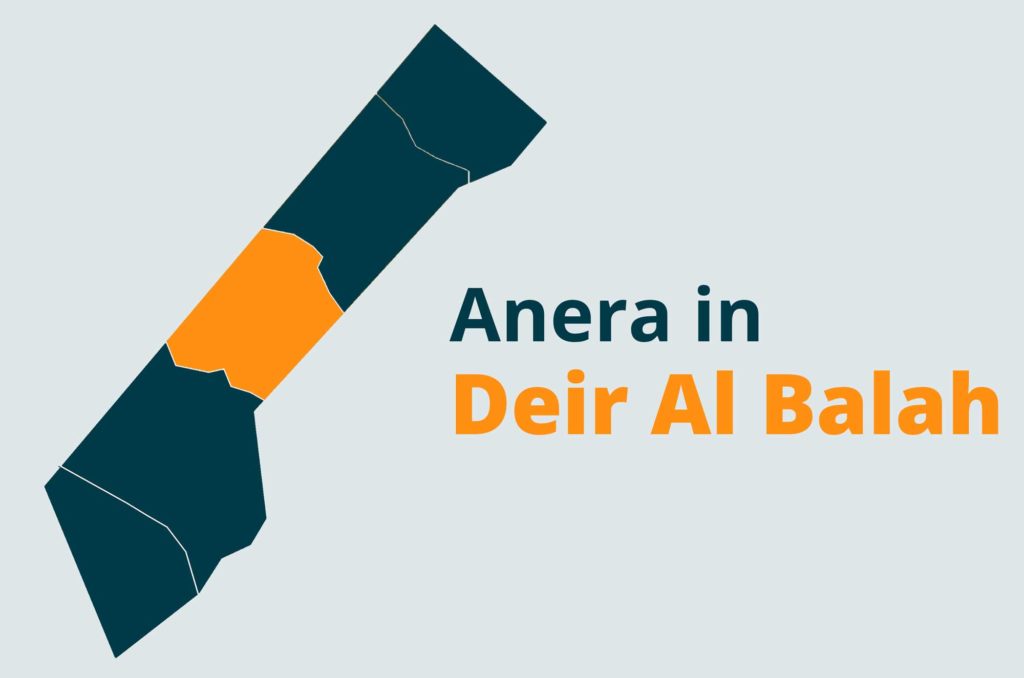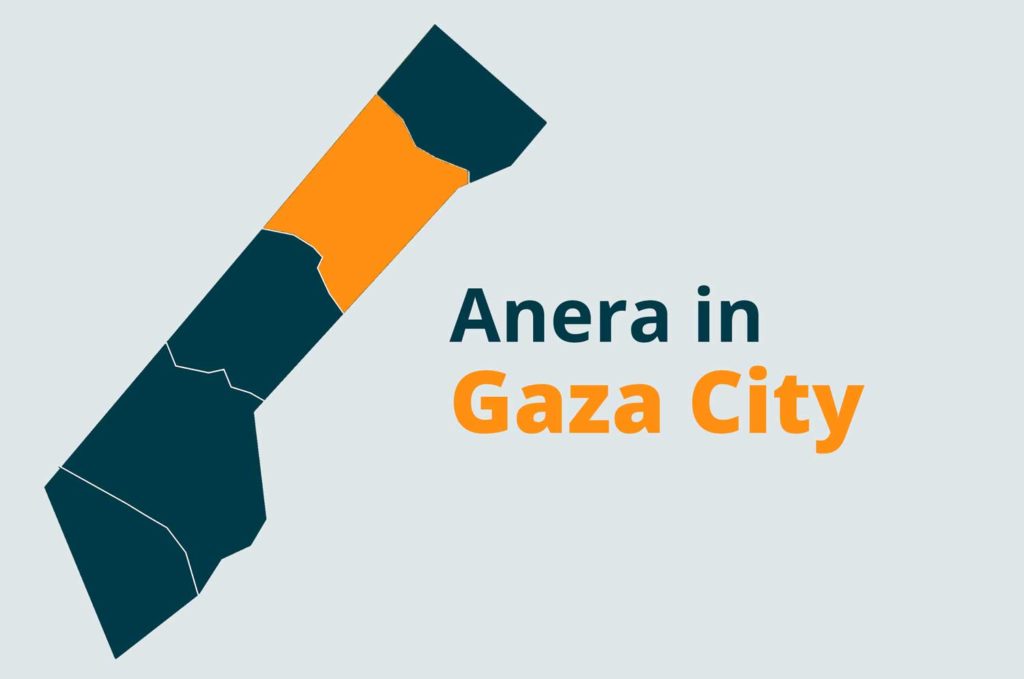Apr, 2013
In Gaza, 15 community workers and 127 preschool teachers gathered at the YMCA for training classes on the fundamentals of early childhood development and how it can apply to the classroom.
They learned about active learning, nutrition and healthy eating habits, reading strategies, child protection and positive parenting.
Preschool teacher Dana Ebeid returned to her preschool in El-Zawaiyda and put her newly-learned knowledge to work with her students. “My past traditional classes where I gave all my students the same activity, like writing the new letters, were boring. Some of the children didn’t like to write, but I used to make them do it anyway,” said Dana.
The 27-year-old teacher says the training gave her confidence to divide the students into groups and give each group its own activity–writing, coloring and drawing. Every child can now pick the group he wants to join and then they rotate the activities. “I can see the children are much more engaged now and learn faster,” she added.
Dana keeps her 20 students busy in fun-filled activities. “They don’t ask about leaving time like they used to do. Now, I start the day with a little story as an introduction for the day’s theme and from there we continue.” Dana ended her class with a game about fresh vegetables and fruits.
Anera organizes the training sessions as part of its early childhood development initiative. In Gaza, the USAID-funded Right Start! program works with 60 preschools and 30 community centers to provide specialist training for preschool teachers and principals, equipment and learning materials as well as educational development activities such as reading, painting, drama and summer camps.
Participants in the latest training sessions also learned about child growth, manners and dealing with bad behavior through story telling. “Telling a story without pointing out to the child who misbehaves sends a message to the whole class,” Dana explained. “This is the power of telling a story.”
Community worker Hala Abu Taqeya learned a good way to start the day: warm-up activities get the children quickly involved in the class. One day she used a colorful parachute to grab their attention and it worked.
“Once I had their attention, I read a story and make the children draw something from the story afterwards. We have a lot of fun and play many games,” says Hala, who spent four years as a community worker in Middle Gaza before turning to teaching. She now teaches two classes a day with about 17 children in each.”
“As soon as I got back from the training, I started to change my way of dealing with children, especially with the ones who need special intervention. I learned to give more time and space to stubborn children,” she said.
Community workers like Hala give classes to children after school or to kids who cannot afford to go to a preschools. They also visit homes for social counseling and to work with parents on good learning practices for their children.
In the training sessions, for example, Hala learned how to encourage healthy habits to share at home. “They learn to properly brush their teeth, wash their hands and help their moms.”
Hala says the training guided her on how to adapt her teaching methods to focus more on the child. “I learned that teachers need to act naturally and never be a superior. We should come down to the child’s eye level when speaking and we need to develop methods of being close to their children.”
She remembers one child who regularly misbehaved. “So, I took extra time to talk to him and encourage him and he has changed.” explains Hala. “I also discovered how important it is to give a child a hug. It makes a difference and I see now that he trusts and he has changed.”
Early childhood development experts stress the importance of reading to young children to encourage their creativity and learning skills. Through the ECD training sessions, Gaza preschool teachers learn how to foster a love of reading.
Preschool teacher Mona Abu Jurai says reading also can teach valuable health habits too. “I select stories that relate to hygiene and cooperation.” Using puppets, she discovered, is an excellent education tool so she now gets the children to make their own to help act out the stories.
Another key element of the training, Mona says, focuses on how to involve parents in their children’s learning. “I gave sessions to mothers to complete our role inside homes and to boost the relationship between mothers and their children.”




